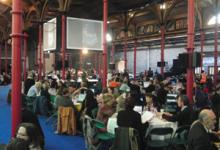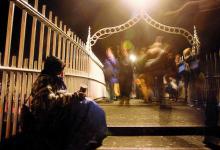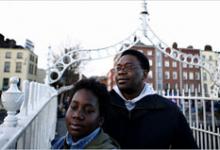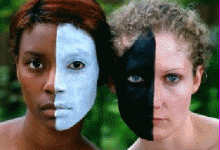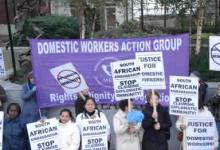Claiming Our Future building upward
- 1 March 2011
- Siobhan O'Donoghue
Irish society is characterised by significant and persistent inequalities. Wealth is highly concentrated, income is poorly distributed, publicly funded services are being diminished. Irish biodiversity and ecosystems are under increasing pressure. Greenhouse gas emissions are starting to grow again. Yet equality and environmental sustainability remain at the margins of political decision-making, writes Siobhan O'Donoghue of Claiming Our Future.
Society cannot tolerate inequality - some reflections at the end of 2010
- 4 January 2011
- Siobhan O'Donoghue
History suggests that there is a limit to the degree of income inequality that is sustainable in society. For example, gross levels of income inequality is believed to have been one of the causal factors of The Great US Depression in the 1920's and there are many reasons to believe that inequality is a contributory factor to the situation we now find ourselves in nationally and globally. By Siobhán O'Donoghue
Summary deportation must not be made legal in our so called civilised democracy
- 12 October 2010
- Siobhan O'Donoghue
The new Immigration Bill creates the conditions for miscarriages of justice to occur, by Siobhán O' Donoghue
The Immigration Residency and Protection Bill passed the Second Stage in the Dail last week. This brings the legal basis for summary deportation, without notice, of anyone found to be illegally resident in Ireland, a step closer to becoming reality.
Core values ignored
- 31 August 2010
- Siobhan O'Donoghue
Big business still favoured
- 20 July 2010
- Siobhan O'Donoghue
There is a shocking distinction between the treatment of asylum seekers and the powerful in Irish society. By Siobhan O’Donoghue.
There is big money in oil. Certainly that seems to be the motivation for people like Sean Fitzpatrick, who along with Lar Bradshaw invested €25m in Movido Exploration and Production, an oil company operating in the Niger Delta region of Nigeria.
There is also big trouble associated with oil. The people of the Niger Delta have been struggling with this reality for decades.
Recognising and responding to racism
- 6 July 2010
- Siobhan O'Donoghue
Ireland is changing as a society. This change is accompanied by the many ways oppression (including racism) manifests in society. The very existence of racism has been markedly denied in recent years. Instead, the semantics of diversity and integration dominate the policy and public discourse. By Siobhan O’Donoghue.
Modern day slavery in modern day Ireland
- 24 May 2010
- Siobhan O'Donoghue
Criminalisation of forced labour would greatly assist in strengthening protections and rights for immigrants. By Siobhán O’Donoghue, Director, Migrant Rights Centre Ireland.
A few weeks ago a Chinese woman, who is a potential victim of trafficking for forced labour was freed from prison under bail conditions where she has been held for the past 18 months.
Cutting minimum wage is no answer to crisis
- 5 April 2010
- Siobhan O'Donoghue
Siobhan O’Donoghue replies to Trevor Sergeant who has defended proposals to cut the minimum wage.
A flawed assumption prevails within business, media and political circles that cutting the minimum wage would somehow assist economic recovery and improve competitiveness.
For starters this approach will not help create employment. Much of the work undertaken by minimum wage earners is considered to be in low productivity sectors and it is not these jobs that has traditionally driven competitiveness or fuelled growth.


